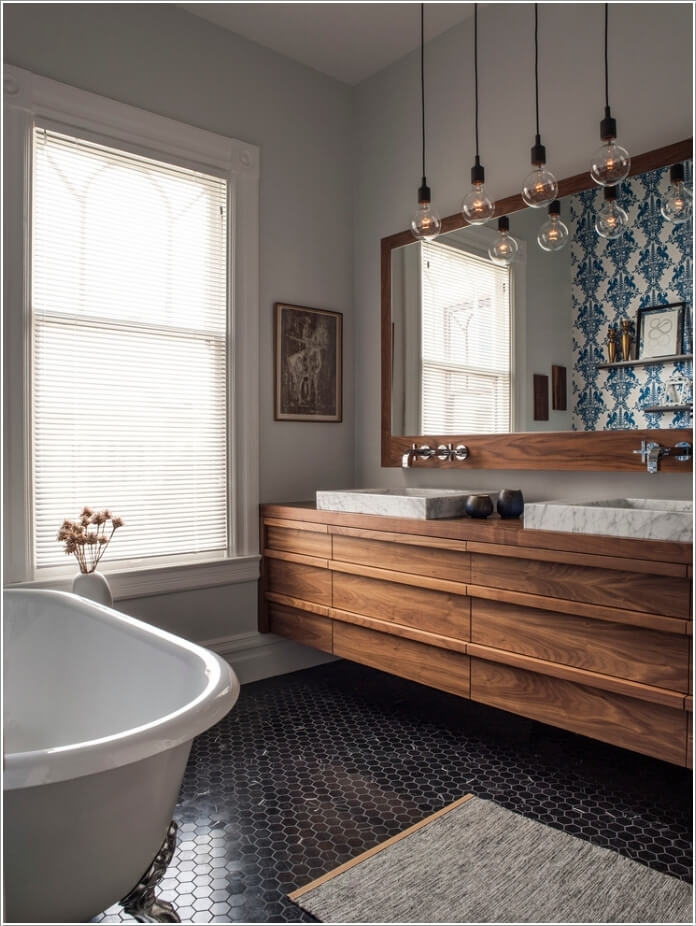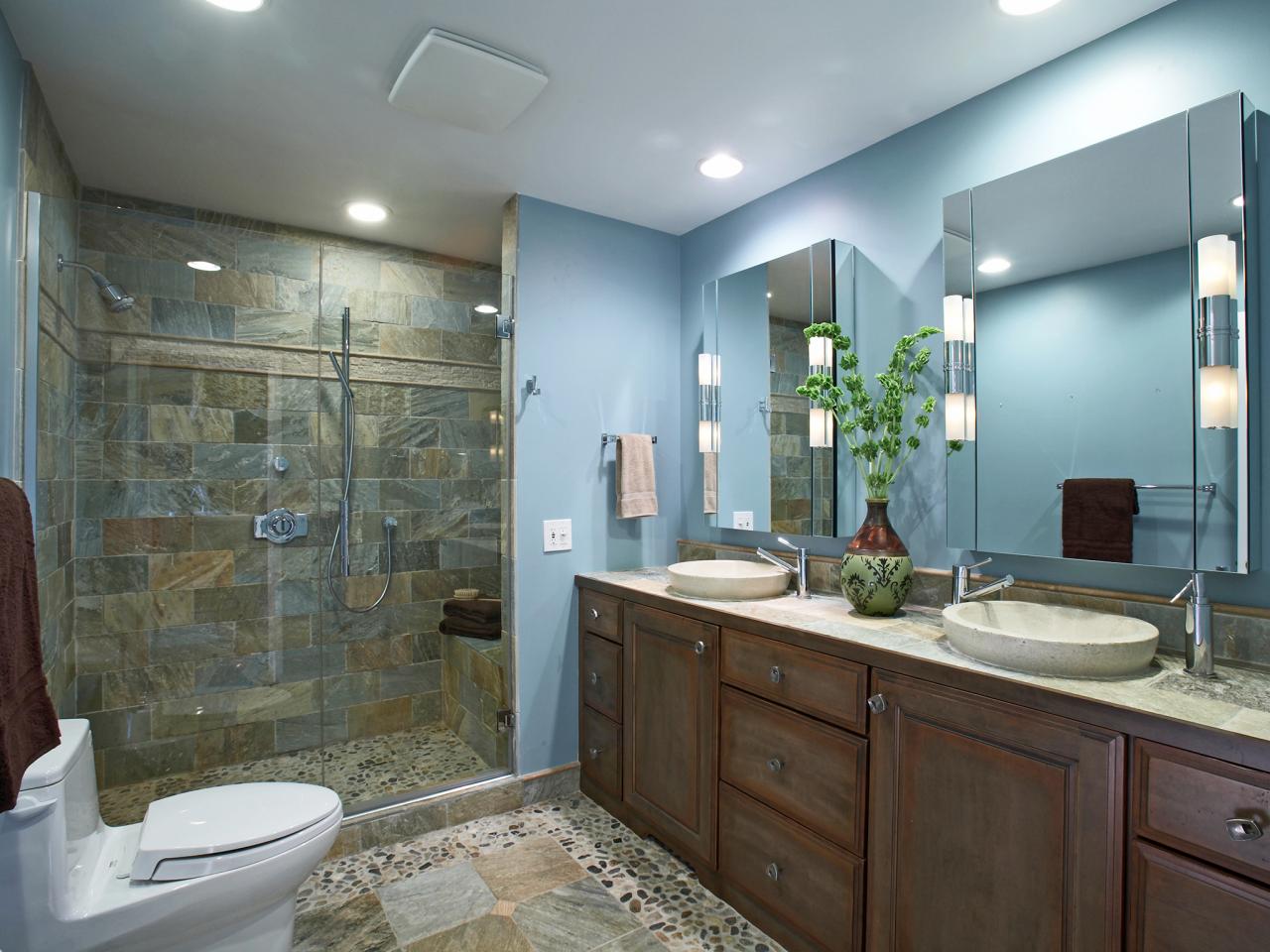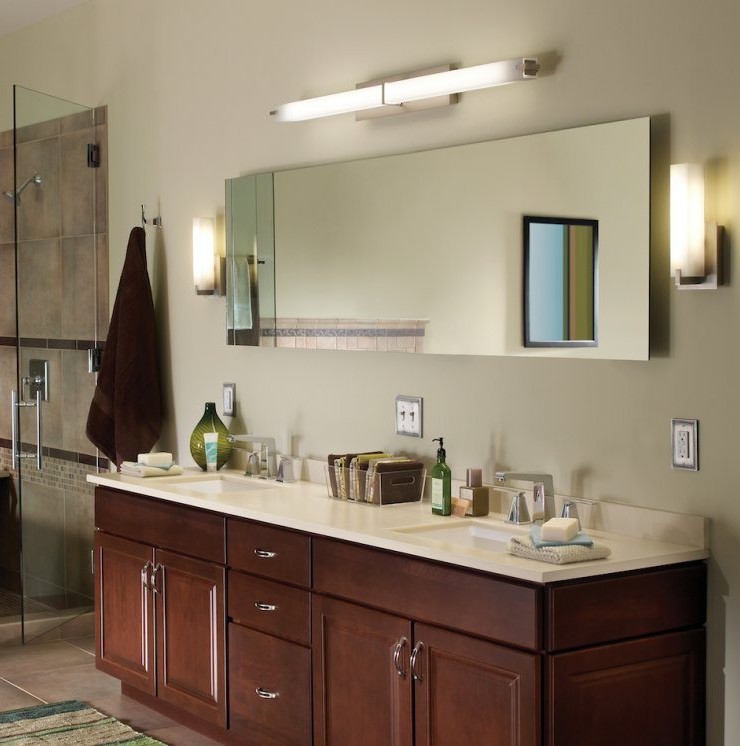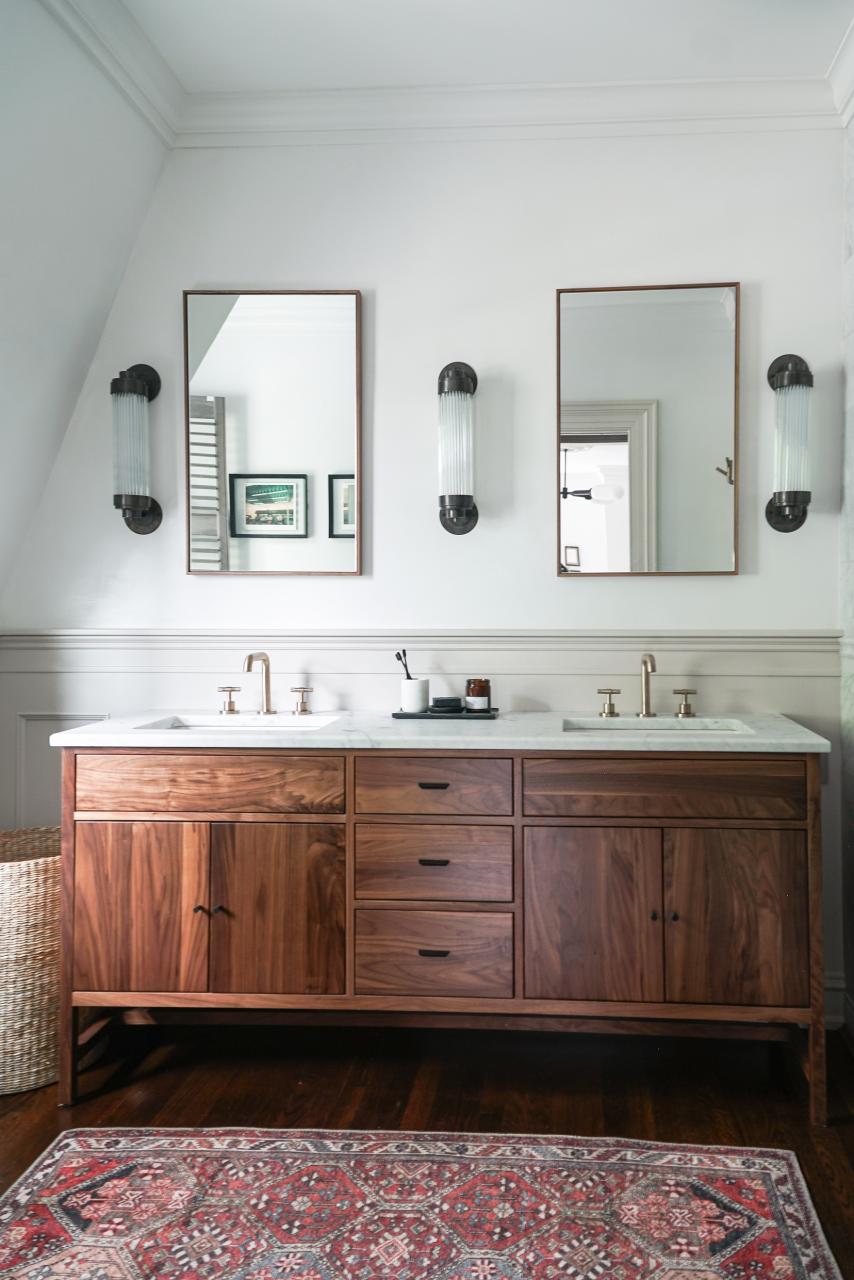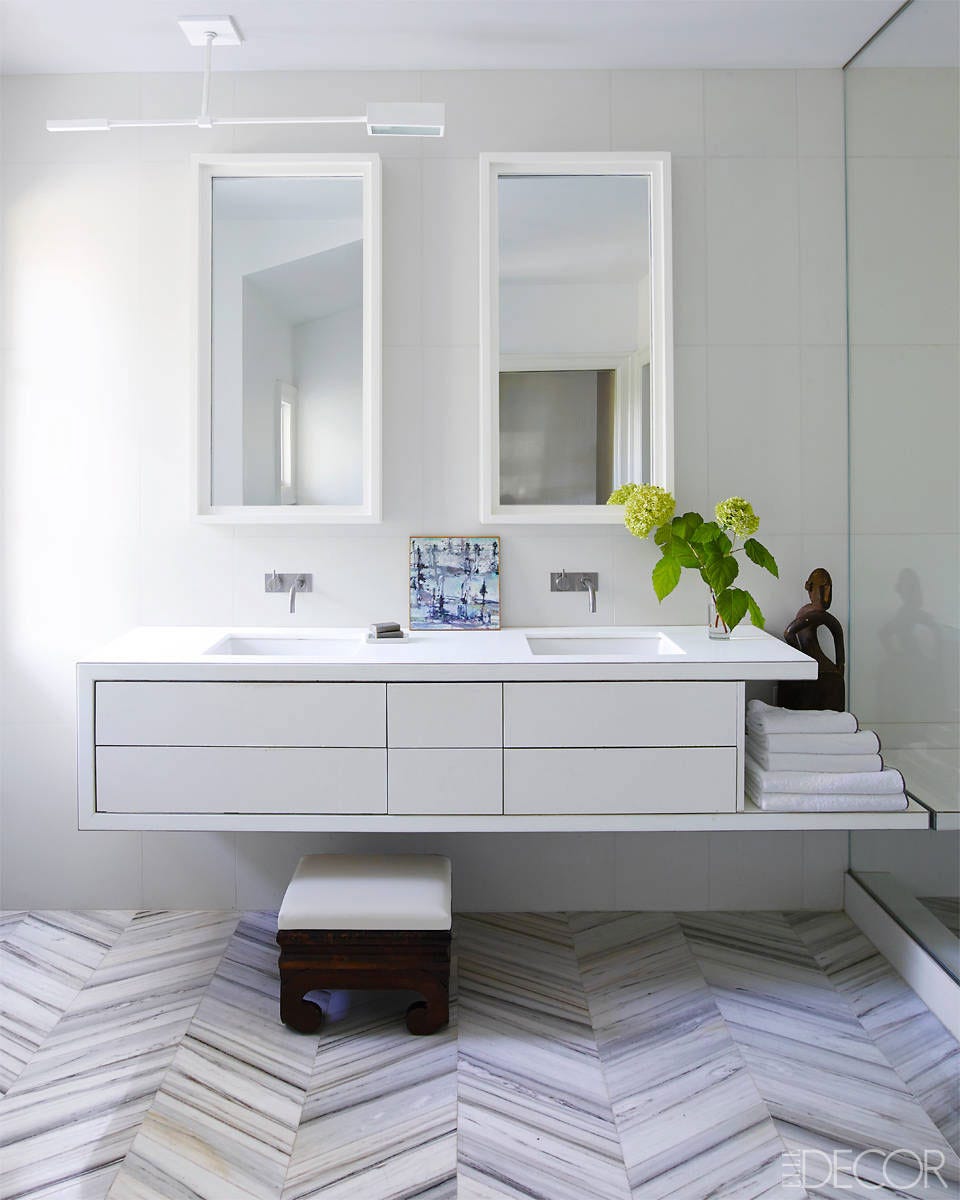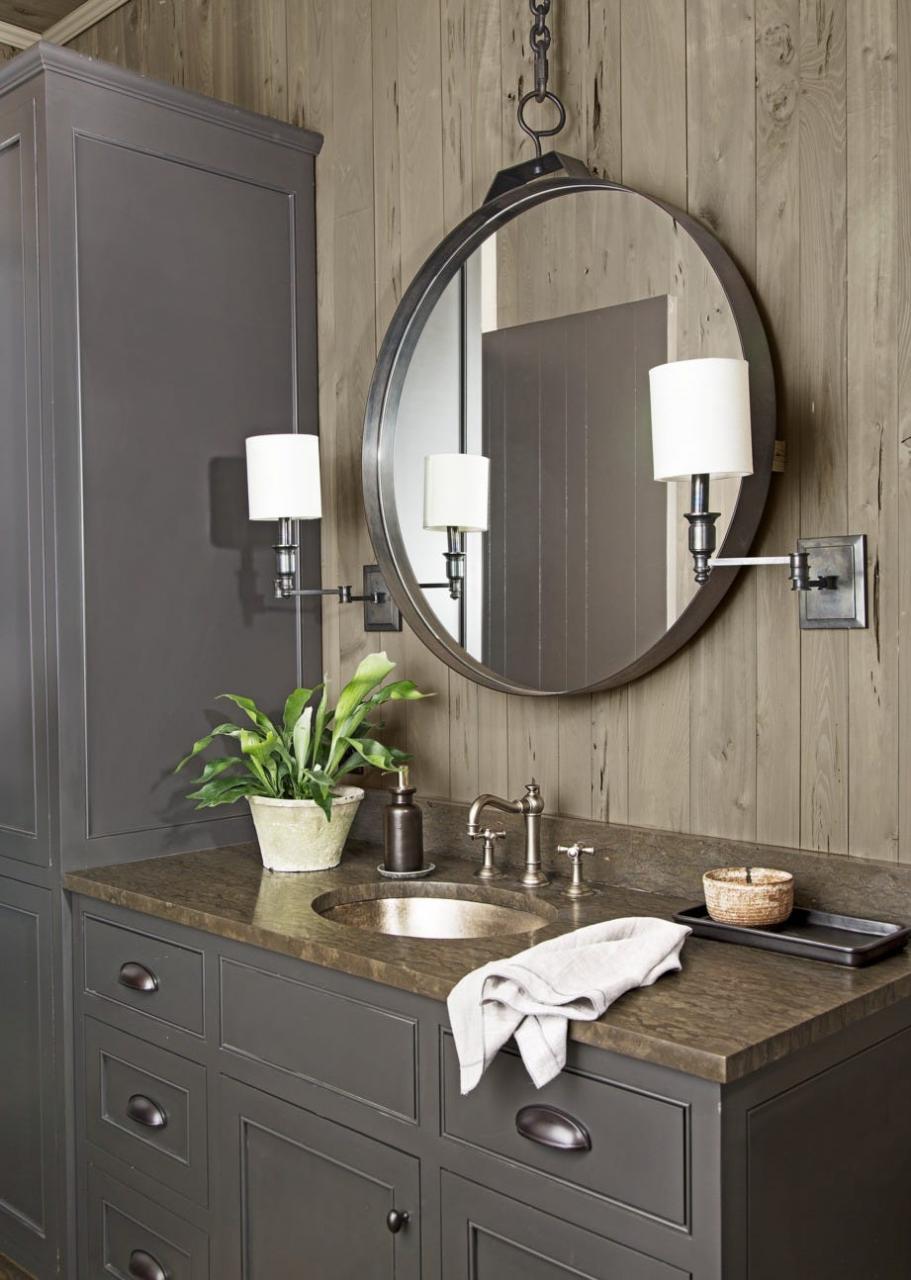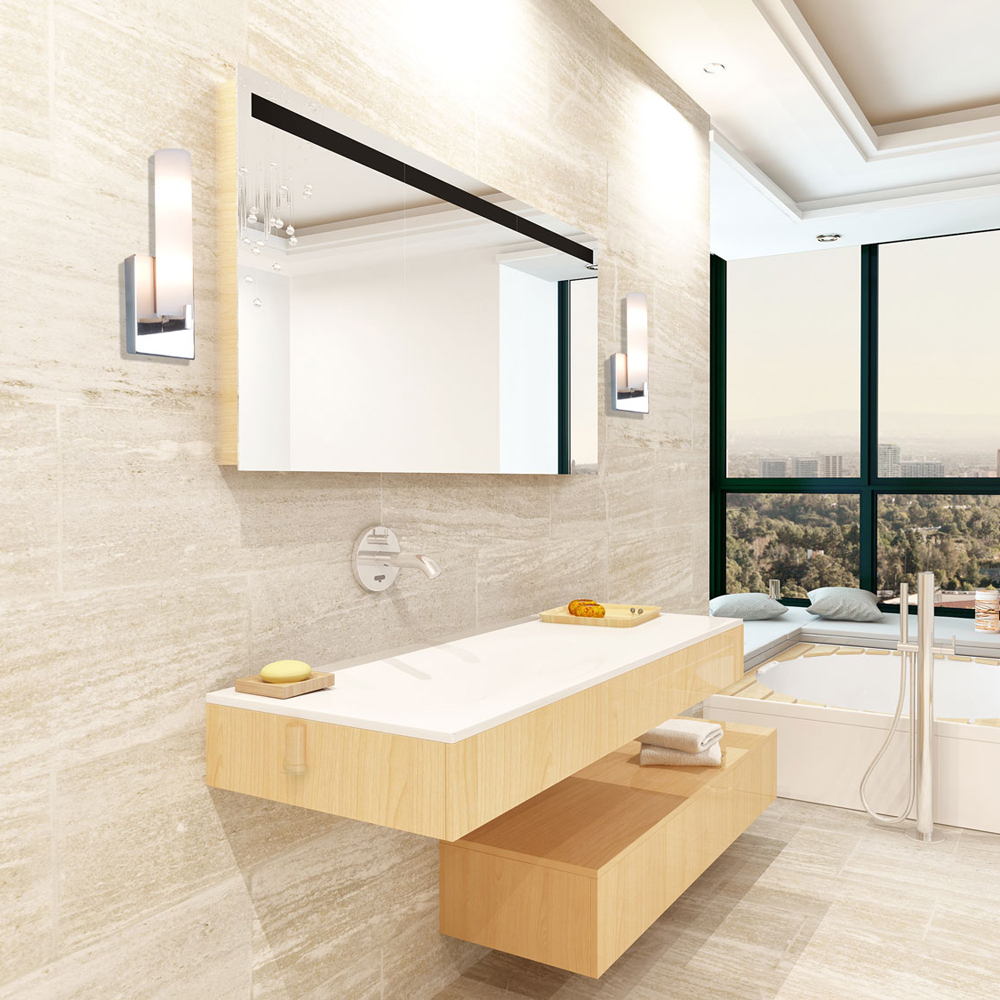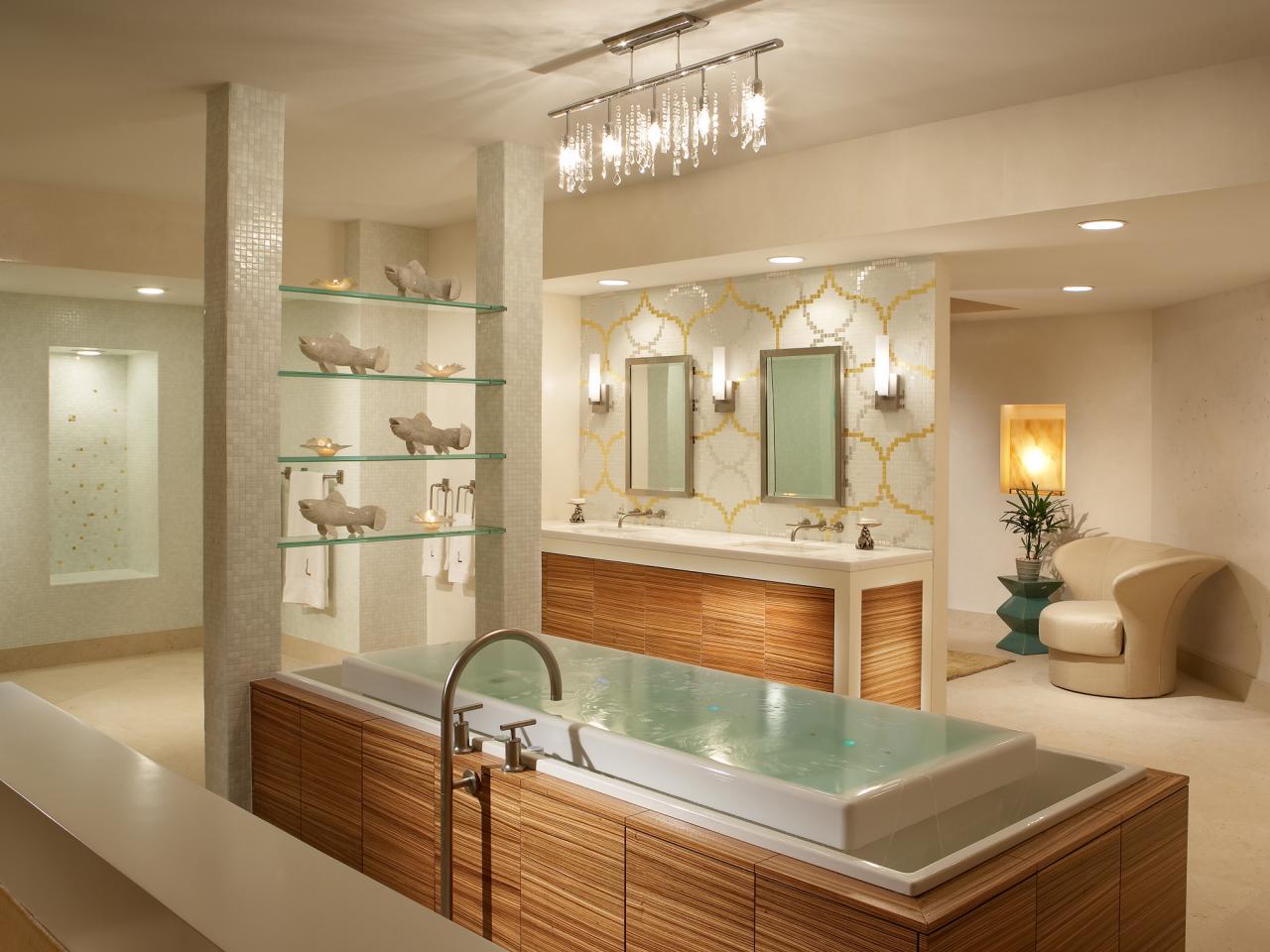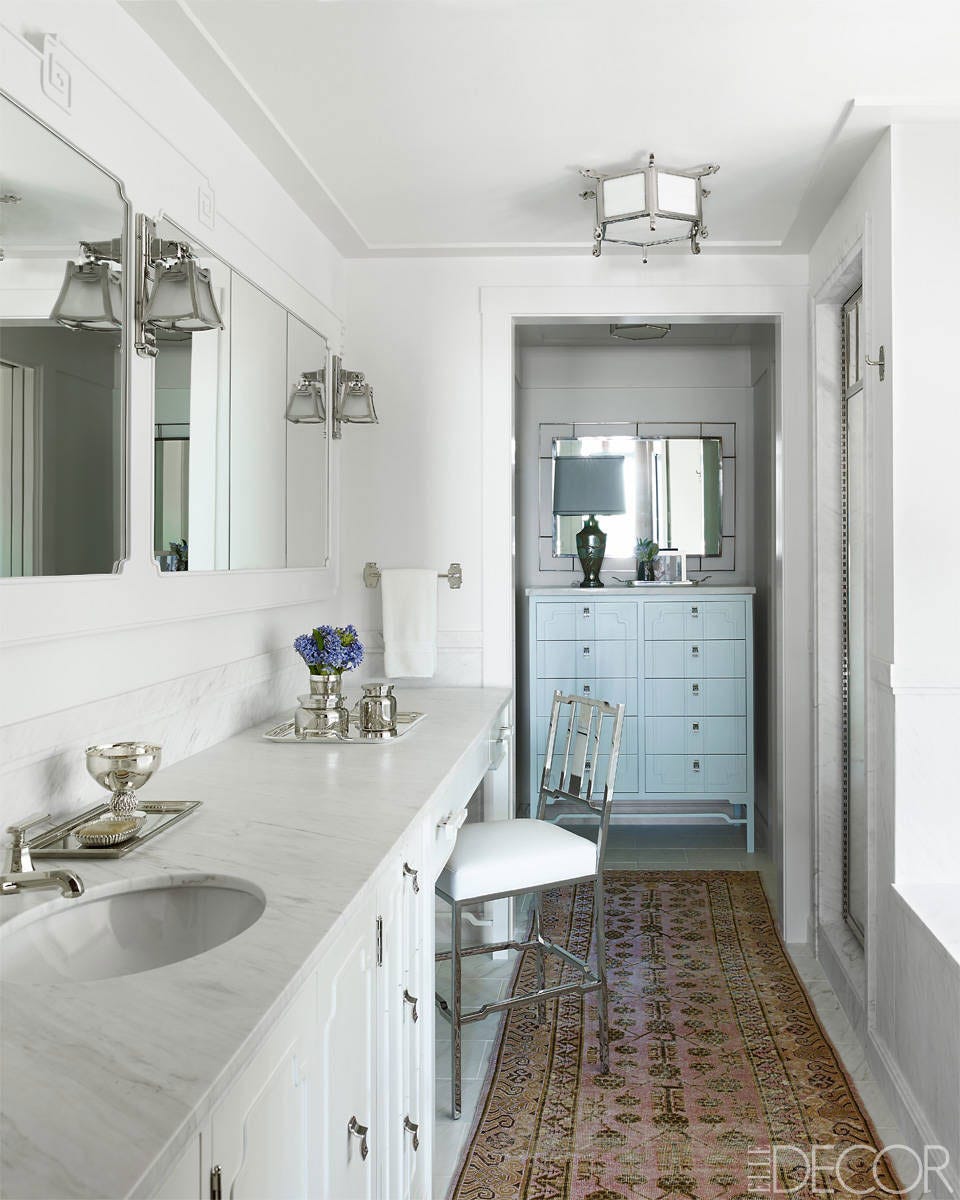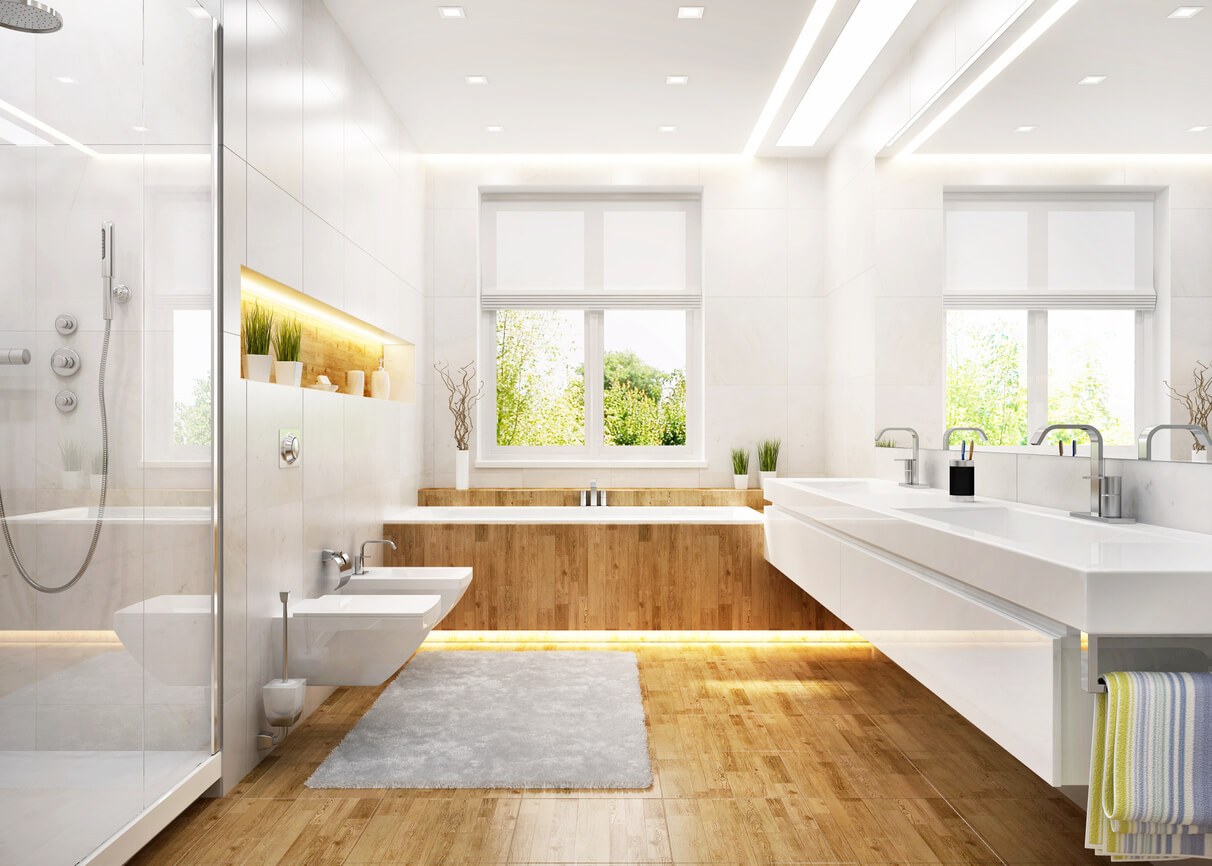Maximizing Natural Light: Brightening Your Bathroom with Sunlight
Natural light can transform any space, making it feel larger, more open, and inviting. In bathrooms, this is particularly beneficial as it enhances visibility and creates a spa-like ambiance. Here are some key strategies to maximize natural light in your bathroom.
- Install Larger Windows Consider replacing small windows with larger ones to allow more light to enter. Floor-to-ceiling windows, skylights, or transom windows above existing fixtures can dramatically increase the amount of natural light in your bathroom. If privacy is a concern, frosted or textured glass can be used to maintain seclusion while still letting in light.
- Utilize Skylights and Solar Tubes Skylights are an excellent way to bring in sunlight from above, which can be particularly effective in bathrooms located on the top floor of a house. Solar tubes, also known as sun tunnels, are another great option. These tubes capture sunlight and funnel it down into the bathroom, providing natural light even in windowless spaces.
- Choose Light Colors for Walls and Floors Light colors reflect light rather than absorb it, helping to brighten the space. Consider using white or pastel shades for walls, ceilings, and floors. Reflective surfaces like glossy tiles or mirrors can also help to bounce light around the room, amplifying the effect of natural light.
- Minimal Window Treatments Heavy curtains or dark blinds can block out natural light. Opt for sheer curtains or light-colored blinds that can be easily adjusted to control the amount of light entering the room without completely obstructing it. Consider using top-down, bottom-up shades that provide privacy while still allowing light in from the top.
- Strategic Placement of Mirrors Mirrors are fantastic for reflecting natural light and can make your bathroom appear brighter and more spacious. Place mirrors opposite or adjacent to windows to maximize the light reflection. Large, wall-to-wall mirrors can create a significant impact, while smaller, decorative mirrors can also contribute.
- Clear the Clutter Clutter can cast shadows and obstruct light flow. Keep countertops clear and organize bathroom essentials in cabinets or storage units. A clean, uncluttered space not only looks more appealing but also allows light to disperse more evenly throughout the room.
Task Lighting: Enhancing Functionality at the Vanity
Task lighting is essential in the bathroom, particularly around the vanity area where activities like shaving, makeup application, and hair grooming take place. Proper task lighting ensures these activities are performed with precision and comfort. Here are some effective ways to enhance functionality with task lighting.
Install Sconces at Eye Level Wall-mounted sconces placed at eye level on either side of the mirror provide even, shadow-free illumination. This setup helps to eliminate shadows under the chin, eyes, and cheeks, offering a clear and flattering light for grooming tasks.
Use LED Strip Lights LED strip lights installed along the perimeter of the mirror or under the vanity provide excellent task lighting. These lights are energy-efficient, long-lasting, and can be easily adjusted in terms of brightness and color temperature to suit different needs.
Overhead Lighting In addition to side lighting, an overhead fixture above the mirror can provide balanced illumination. Choose a fixture that complements the style of your bathroom while offering sufficient brightness. Make sure the light is diffused to avoid harsh shadows.
Adjustable Lighting Consider fixtures with adjustable arms or swiveling heads. These allow you to direct light precisely where it’s needed, providing flexibility for various tasks. This can be particularly useful if multiple people with different lighting needs use the same vanity.
Dimmable Options Dimmable task lighting allows you to adjust the brightness according to the time of day or specific task requirements. Bright light is essential for precision tasks, while softer light can be more relaxing for evening routines.
Lighting with the Right Color Temperature The color temperature of the light is crucial for task lighting. Lights with a color temperature of 4000K to 5000K are considered ideal for task lighting in bathrooms as they mimic natural daylight and provide clear, accurate lighting for grooming activities.
Ambient Lighting: Creating a Relaxing Atmosphere
Ambient lighting sets the overall mood and tone of a bathroom. It is the base layer of lighting that ensures the space is uniformly illuminated, creating a warm and inviting atmosphere. Here’s how to achieve effective ambient lighting in your bathroom.
Ceiling Fixtures Ceiling-mounted fixtures, such as flush mounts or semi-flush mounts, are common sources of ambient lighting. Choose fixtures that provide diffuse light to avoid harsh shadows. The style of the fixture can also contribute to the overall aesthetic of the bathroom.
Recessed Lighting Recessed lights, or can lights, are installed in the ceiling and provide a clean, unobtrusive lighting option. They are ideal for creating even lighting throughout the space. When placing recessed lights, ensure they are evenly spaced to avoid creating dark spots.
Chandeliers and Pendant Lights For a touch of elegance, consider installing a chandelier or pendant lights. These fixtures can serve as a focal point in the bathroom while providing ample ambient light. Make sure they are appropriately sized for the space to avoid overwhelming the room.
Wall-mounted Fixtures Wall sconces can also contribute to ambient lighting, especially when placed strategically around the room. They provide a soft, diffuse light that can enhance the overall ambiance of the bathroom.
LED Backlighting LED backlighting behind mirrors, under cabinets, or along architectural features can create a soft glow that enhances the ambient lighting. This type of lighting adds a modern touch and can be used to highlight specific areas or create a calming atmosphere.
Dimmers and Smart Controls Incorporating dimmers or smart lighting controls allows you to adjust the intensity of the ambient lighting. This flexibility lets you create different moods, such as a bright, energizing light for morning routines or a soft, soothing light for evening relaxation.
Accent Lighting: Highlighting Architectural Features and Decor
Accent lighting is used to draw attention to specific features within the bathroom, such as artwork, architectural details, or decorative elements. It adds depth and dimension to the space, making it more visually interesting. Here’s how to effectively use accent lighting in your bathroom.
Highlighting Artwork If you have artwork or decorative pieces in your bathroom, accent lighting can make them stand out. Picture lights or adjustable spotlights can be directed at the artwork to emphasize its details and colors, adding a gallery-like feel to your space.
Illuminating Architectural Features Architectural features like alcoves, niches, or textured walls can be accentuated with targeted lighting. Recessed spotlights or LED strip lights can be used to highlight these elements, creating a dramatic effect and enhancing the overall design.
Backlighting Mirrors Backlit mirrors provide a modern and stylish look while also serving as functional lighting. The soft glow from behind the mirror creates a halo effect, adding depth and sophistication to the bathroom. This type of lighting is both decorative and practical, providing additional illumination around the vanity.
Lighting Shelves and Cabinets Installing lights inside shelves or cabinets can highlight the contents and add a luxurious touch. LED strip lights are ideal for this purpose, offering a subtle yet effective way to showcase toiletries, towels, or decorative items.
Floor-Level Lighting Floor-level accent lighting, such as LED strips along the baseboards or toe-kick lighting under cabinets, can create a floating effect and add a modern touch. This type of lighting not only enhances the aesthetic appeal but also provides a safety feature by illuminating the floor.
Accent Lighting for Plants If you have plants in your bathroom, consider using accent lighting to highlight their beauty. Small spotlights or adjustable fixtures can be directed at the plants, creating a natural and serene atmosphere.
Choosing the Right Fixtures: Styles and Finishes for Every Bathroom
Selecting the right fixtures for your bathroom is crucial to achieving both functionality and aesthetic appeal. Fixtures come in various styles and finishes, each contributing to the overall look and feel of the space. Here’s a guide to choosing the right fixtures for your bathroom.
Traditional Style Traditional bathroom fixtures feature classic designs with ornate details and intricate patterns. Look for fixtures with antique finishes such as brushed nickel, oil-rubbed bronze, or polished brass. These fixtures add a timeless elegance and are perfect for bathrooms with a vintage or classic theme.
Modern Style Modern fixtures are characterized by clean lines, minimalistic designs, and sleek finishes. Chrome, stainless steel, and matte black are popular finishes for modern fixtures. These fixtures work well in contemporary bathrooms, offering a streamlined and sophisticated look.
Transitional Style Transitional fixtures blend elements of both traditional and modern styles, creating a versatile and balanced aesthetic. They often feature clean lines with subtle decorative details. Finishes like brushed nickel or polished chrome are common, making these fixtures suitable for a variety of bathroom designs.
Industrial Style Industrial fixtures have a rugged, unfinished look with exposed hardware and raw materials. Black metal, aged bronze, and weathered brass are typical finishes. These fixtures add a bold, edgy look and are ideal for urban or loft-style bathrooms.
Rustic Style Rustic fixtures have a warm, natural feel, often featuring materials like wood, wrought iron, and distressed metal. Finishes such as antique brass, copper, and weathered wood complement rustic decor. These fixtures are perfect for creating a cozy, farmhouse-inspired bathroom.
Eclectic Style Eclectic fixtures combine various styles and finishes for a unique and personalized look. Mixing and matching different elements can create a distinctive and vibrant bathroom design. Choose fixtures with bold colors, unusual shapes, and diverse materials to achieve an eclectic style.
Energy Efficiency: Sustainable and Cost-Effective Lighting Solutions
Energy-efficient lighting solutions not only help reduce your utility bills but also contribute to environmental sustainability. Implementing these solutions in your bathroom can make a significant difference. Here’s how to achieve energy efficiency in bathroom lighting.
LED Lighting LED lights are the most energy-efficient lighting option available. They use up to 80% less energy than traditional incandescent bulbs and last significantly longer. Installing LED fixtures or retrofitting existing fixtures with LED bulbs can provide immediate energy savings.
Motion Sensors and Timers Installing motion sensors or timers can help ensure that lights are only on when needed. Motion sensors automatically turn lights on when someone enters the bathroom and off when they leave. Timers can be set to turn lights off after a specific period, preventing unnecessary energy consumption.
Dimmable Lights Dimmable lights allow you to adjust the brightness according to your needs, reducing energy usage when full brightness is not required. This feature also extends the lifespan of the bulbs by reducing the strain on them.
Energy-Efficient Fixtures Look for fixtures that are specifically designed for energy efficiency. These fixtures often come with integrated LED technology and are designed to maximize light output while minimizing energy consumption. ENERGY STAR-rated fixtures are a good choice for guaranteed efficiency.
Natural Light Utilization Maximizing natural light reduces the need for artificial lighting during the day. Strategically placed windows, skylights, and solar tubes can provide ample daylight, cutting down on energy usage. Make sure to incorporate features that allow you to control the amount of natural light to avoid overheating.
Smart Lighting Controls Smart lighting systems allow you to control your bathroom lights remotely via a smartphone app. You can set schedules, adjust brightness, and monitor energy usage. These systems can also integrate with other smart home devices, offering convenience and additional energy-saving opportunities.
Common Mistakes to Avoid
Designing bathroom lighting involves more than just choosing attractive fixtures. Avoiding common mistakes ensures your lighting is both functional and visually appealing. Here are some frequent pitfalls and how to avoid them.
Inadequate Lighting Layers Relying on a single source of light can leave your bathroom dim and shadowy. Incorporate multiple lighting layers, including ambient, task, and accent lighting, to ensure a well-lit and balanced space. Each layer serves a different purpose and enhances the overall functionality.
Incorrect Light Placement Poor placement of lights can result in unflattering shadows and inadequate illumination. For instance, overhead lights alone can cast shadows on your face, making grooming tasks difficult. Ensure task lights are placed at eye level and ambient lights are evenly distributed.
Ignoring Color Temperature The color temperature of light affects the ambiance and functionality of the bathroom. Using bulbs with the wrong color temperature can create an unpleasant or ineffective lighting environment. Opt for bulbs with a color temperature between 4000K and 5000K for a natural, bright light ideal for bathrooms.
Overlooking Dimmers Dimmers provide flexibility and control over lighting intensity. Without dimmers, you miss the opportunity to adjust the lighting to suit different activities and moods. Install dimmable fixtures to customize your lighting and enhance energy efficiency.
Choosing Fixtures That Don’t Match the Bathroom Style Fixtures that clash with the overall bathroom design can disrupt aesthetic harmony. Ensure that the style and finish of your lighting fixtures complement other elements in the bathroom, such as faucets, hardware, and decor, for a cohesive look.
Forgetting About Safety Bathrooms are prone to moisture and humidity, which can affect electrical fixtures. Use fixtures rated for wet locations to ensure safety and durability. Proper ventilation is also crucial to prevent moisture-related issues.
Common FAQs
When it comes to bathroom lighting, many questions arise about functionality, design, and installation. Here are some common FAQs to help guide you through the process.
What is the best type of lighting for a bathroom?
A combination of ambient, task, and accent lighting is ideal for a bathroom. Ambient lighting provides general illumination, task lighting focuses on specific areas like the vanity, and accent lighting highlights architectural features and decor.
How bright should bathroom lights be?
The brightness of bathroom lights depends on the size and layout of the room. Generally, aim for 75-100 lumens per square foot. Task lighting at the vanity should be around 1500-2000 lumens to ensure adequate visibility for grooming tasks.
Can I use any light fixture in the bathroom?
No, not all light fixtures are suitable for bathrooms. Ensure that fixtures are rated for wet locations to withstand the moisture and humidity typical in bathrooms. This rating ensures safety and longevity.
How can I make my bathroom lighting more energy-efficient?
Use LED bulbs, which are highly energy-efficient and long-lasting. Install dimmers, motion sensors, or timers to control lighting usage. Maximize natural light through windows or skylights to reduce reliance on artificial lighting during the day.
What color temperature is best for bathroom lighting?
A color temperature between 4000K and 5000K is ideal for bathroom lighting as it mimics natural daylight. This range provides clear, bright light that is perfect for grooming tasks and creates an inviting atmosphere.
How can I prevent shadows in my bathroom lighting?
To prevent shadows, use multiple light sources and place them strategically. Wall sconces on either side of the mirror, overhead lighting, and under-cabinet lights work together to provide even illumination. Avoid placing lights directly above the mirror, as this can cast unflattering shadows on the face.
Bathroom Lighting Ideas Design Necessities
Bathroom Lighting Fixtures
Bathroom Lighting Ideas For Every Style – Modern Light Fixtures
Bathroom Lighting Ideas for All Bathroom Design Styles
Related Posts:
- Bathroom Light Fixture Images
- Wall Mounted Led Bathroom Lights
- Decorative Bathroom Light Bulbs
- Standard Bathroom Light Fixture Height
- Combined Bathroom Light Extractor Fan
- Bathroom Lighting Guide
- Bathroom Lighting Installation
- Modern Bathroom Lighting Fixtures
- Bathroom Lighting Design Ideas
- Bathroom Lighting Ideas For Small Spaces
